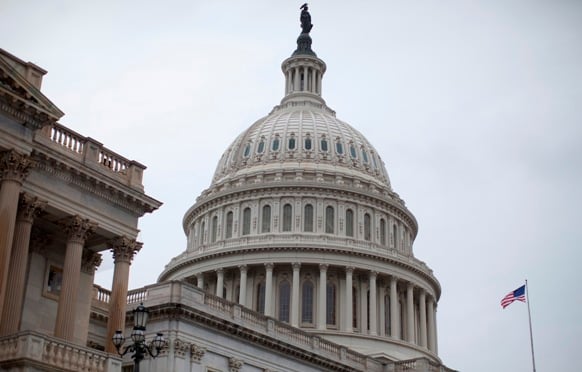The impasse in Washington over raising the federal debt ceiling has exposed U.S. money-market mutual fund clients to increased danger, according to Moody's Investors Service.
“Direct risks include the potential for a missed interest or principal payment on government bonds for a short period of time, as well as incremental weakening of the overall credit quality of money-market fund portfolios that have U.S. government exposure,” the New York-based ratings company said today in a statement.
U.S. money-market funds held about $760 billion in Treasuries, government-agency debt and repurchase agreements in April, according to JPMorgan Chase & Co. Moody's has placed the Aaa rating of U.S. debt on review for possible downgrade as the country approaches Aug. 2, the day the Treasury Department says the government will reach its legal borrowing limit and default on some obligations if the ceiling isn't increased.
The White House and Congressional Republicans have failed to agree on a deficit-reduction package. Republicans say they won't approve an increase of the debt ceiling without first striking such an accord.
Money-market funds rated Aaa by Moody's are “largely resilient to the direct impacts” of a downgrade of the U.S. rating to Aa1, the company said. A debt downgrade to Aa2 or worse “could negatively impact the ratings of a large number of funds,” according to Moody's.
Adding Treasuries
Vanguard Group Inc. hasn't made any major changes because of the debt-ceiling debate, said David Glocke, who oversees about $163 billion in money-fund assets at the Valley Forge, Pennsylvania-based firm.
“We've been adding to Treasury holdings because, as concerns over Europe have evolved, we've reallocated out of Europe and into other sectors of the market,” Glocke said in a telephone interview yesterday.
Glocke said that while he didn't believe a downgrade would significantly affect the pricing of Treasuries, the U.S. government's failure to repay bondholders or make interest payments would be disruptive.
“Congress, the White House, Bernanke and Geithner have made it very clear it's not their intention to do that,” Glocke said, referring to Federal Reserve Chairman Ben S. Bernanke and Treasury Secretary Timothy F. Geithner. “I'm confident the Treasury won't default on its debt.”
No Obligation
Money funds have no obligation to sell or stop buying U.S. treasuries if the debt is downgraded, said Deborah Cunningham, head of taxable money funds at Federated Investors Inc. in Pittsburgh.
Federated is the third-largest manager of U.S. money funds with $230 billion under management, according to research firm Crane Data LLC in Westboro, Massachusetts.
Fidelity Investments and JPMorgan Chase & Co. are the biggest managers.
A greater danger to the industry is posed by the potential for rapid investor withdrawals that could force several funds to begin selling Treasuries and cause prices to fall, said Peter Crane, president of Crane Data.
“Redemptions are always the risk,” Crane said. “A downgrade from the money-fund perspective is a non-event. You're mainly dealing with a headline risk.”
Tony Carfang, a partner at Treasury Strategies, a Chicago- based firm that advises corporate treasurers, said he doesn't see any sign that institutional investors will withdraw.
“If there was going to be movement out of funds, we would be seeing it already,” Carfang said. “No one is going to wait to be the last one to take their money out.”







